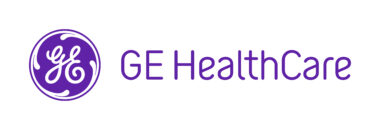In a modern take on the Victorian gold rush, a Monash University-led project is successfully ‘bioprospecting’ for viruses known as phages that can kill deadly superbugs.
The Monash Biomedicine Discovery Institute (BDI) team, led by Dr Rhys Dunstan and Professor Trevor Lithgow of the Bacterial Cell Biology Laboratory, has had some success in tracking down the elusive killers.
Published in Cell Reports, their research sheds new light on how phages can select a ‘superbug’ bacterium that they will kill while ignoring other bacteria that are good for our health.
The findings could lead to an improvement in how individual phages are chosen to treat bacterial infections resistant to antibiotics.
Antimicrobial resistance (AMR) is a global issue, with an estimated five million deaths globally in 2019, a number which continues to climb.
Monash University’s Centre to Impact AMR runs several superbug surveillance programs that are bioprospecting for phages that kill drug-resistant superbugs. They aim to pinpoint phages that can kill specific superbugs and use them to develop treatments.
Bacteriophages are the most abundant biological entities on Earth, with an estimated number that is greater than every other organism, including bacteria, combined. Selecting the right one to treat a given infection is not easy.
In the latest study, Dr Dunstan surveyed waste-water at Addenbrooke’s Hospital in Cambridge UK for phages that can kill a deadly variant of the bacterial superbug Klebsiella pneumoniae.
Klebsiella pneumoniae normally lives in human intestines, where it doesn't cause disease. But if it travels to other parts of the body, it can cause pneumonia, meningitis, urinary tract infections and bloodstream infections.
After analysing the bacterial features essential for the two phages to infect Klebsiella pneumoniae, Dr Dunstan’s team revealed that the infection process had two essential steps involving two distinct components of the bacterial cell surface.
“Now, this information can be used predictively to know which infections will respond to treatment with these two phages,” Dr Dunstan said.
“One of our aims is to create a biobank of different phages that can kill Klebsiella superbugs. Understanding how these phages kill Klebsiella will allow us to better optimise their use as potential treatments.”
Read the full paper in Cell Reports: Epitopes in the capsular polysaccharide and the porin OmpK36 receptors are required for bacteriophage infection of Klebsiella pneumoniae
DOI: https://doi.org/10.1016/j.celrep.2023.112551
For media enquiries please contact:
MEDIA ENQUIRIES
Monash Media
Cheryl Critchley, Media Manager, Monash University
E: [email protected]
M: +61 (0)418 312 596
E: [email protected]
T: +61 (0) 3 9903 4840
For more Monash media stories, visit our news and events
About the Monash Biomedicine Discovery Institute
Committed to making the discoveries that will relieve the future burden of disease, the Monash Biomedicine Discovery Institute (BDI) at Monash University brings together more than 120 internationally-renowned research teams. Spanning seven discovery programs across Cancer, Cardiovascular Disease, Development and Stem Cells, Infection, Immunity, Metabolism, Diabetes and Obesity, and Neuroscience, Monash BDI is one of the largest biomedical research institutes in Australia. Our researchers are supported by world-class technology and infrastructure, and partner with industry, clinicians and researchers internationally to enhance lives through discovery.
***ENDS***


